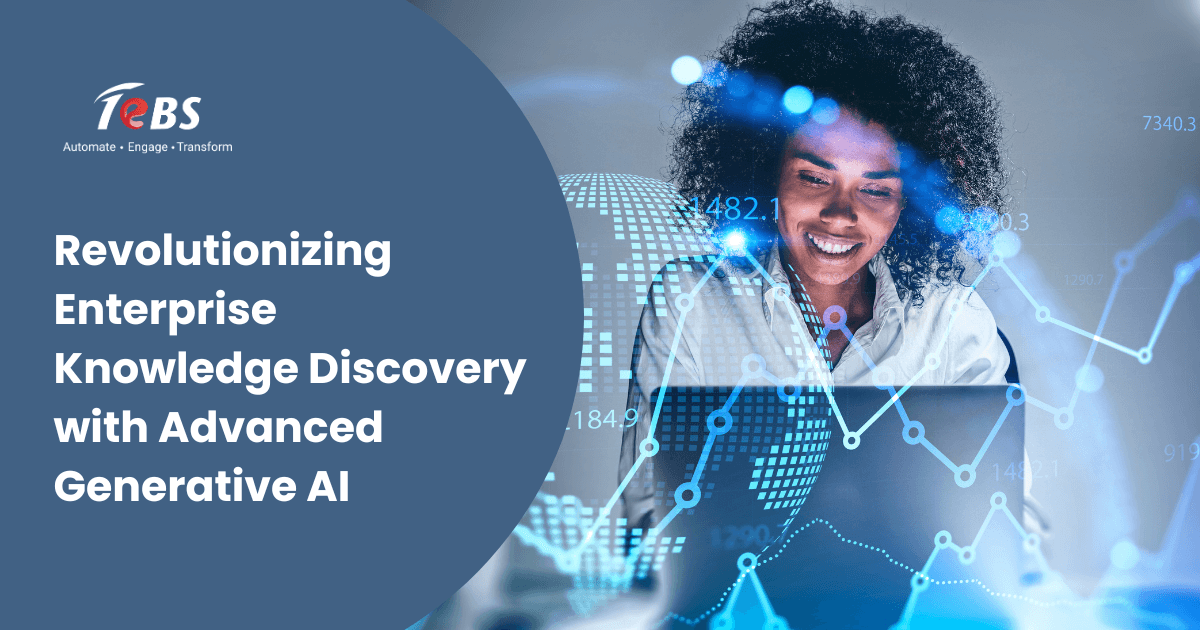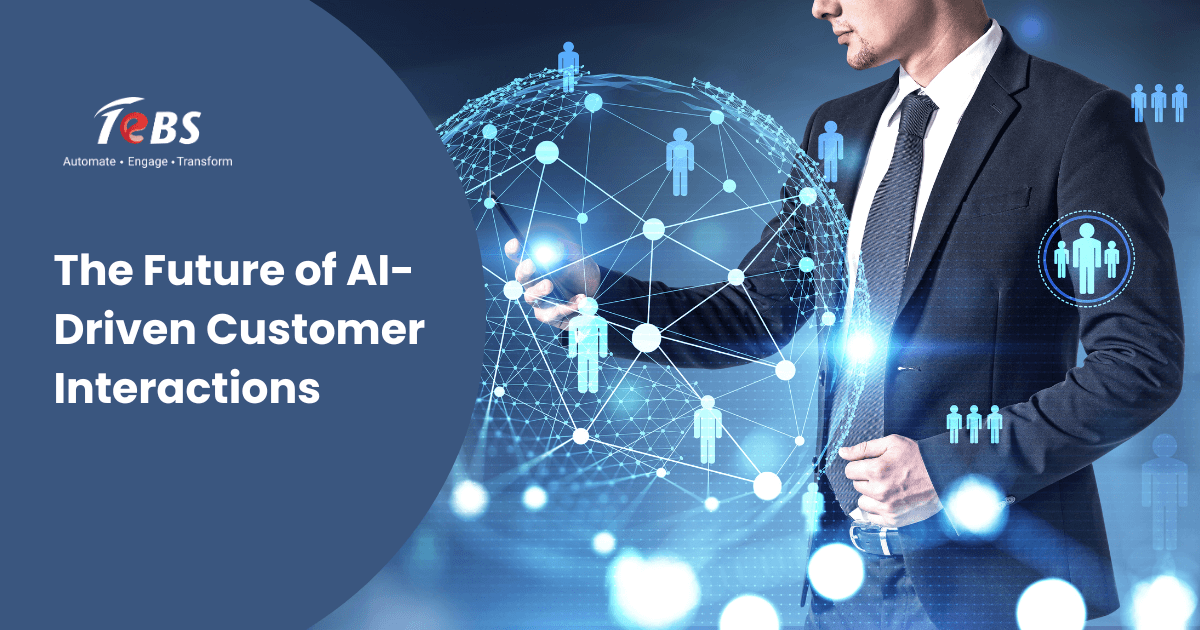In the age of digital transformation, the emergence of generative AI has caused a significant shift in the enterprise landscape & the world has seen a flareup in the advancement of generative AI technology/Chat GPT, with the ability to create complex and realistic digital content. As this technology continues to evolve and mature, it is changing the enterprise’s terrain offering new opportunities for innovation, efficiency, and profitability. However, with the hysteria around generative AI reaching a fever pitch, it’s crucial for enterprises to approach this technology with a clear understanding of its potential benefits and limitations. In this context, adaptation becomes crucial, and enterprises must be prepared to embrace this transformative technology and learn to leverage it to their advantage, or risk being left behind in an increasingly competitive and rapidly evolving marketplace.
What is Generative AI?
Generative AI, a subfield of artificial intelligence (AI), refers to machine learning models that have the ability to generate new, original content, such as text, images, and music. These models have become increasingly popular in recent years, with the advent of powerful deep-learning techniques. Generative AI has emerged as one of the most promising areas of artificial intelligence (AI). In recent years, generative AI has seen significant advancements, thanks to the development of deep learning models such as GPT (Generative Pre-trained Transformer) and other related technologies. One of the most well-known examples of generative AI is Chat GPT, a language model developed by OpenAI. In this blog, we will explore the potential of generative AI and Chat GPT, referencing insights from leading reports from Gartner, BCG, and Accenture.
What is Chat GPT?
Chat GPT is a language model that can generate natural-sounding text in response to prompts from users. It works by analyzing a large corpus of text data and learning to predict the probability distribution of the next word in a sequence of words, given the previous words. This enables it to generate coherent and relevant responses to user queries, making it a useful tool for customer service, chatbots, and other applications.
Generative AI/Chat GPT Augmentation in Various Industries
However, beyond Chat GPT, the future of generative AI for enterprises is even more thought-provoking. According to a Gartner report, generative AI can revolutionize several industries, including healthcare, finance, and manufacturing, by automating complex tasks, improving efficiency, and reducing costs. The report states that generative AI has the ability to transform data-driven decision-making by generating new insights and improving predictive analytics. For example, in healthcare, generative AI can help medical professionals diagnose diseases, predict patient outcomes, and develop new treatments. In finance, it can help financial institutions identify fraud, optimize investments, and personalize customer experiences. It can help companies optimize supply chain management, improve product design, and reduce waste in manufacturing.
Moreover, generative AI is not limited to large enterprises with significant resources. As outlined in the CEO Guide to AI Revolution by Boston Consulting Group (BCG), generative AI can benefit companies of all sizes and industries. BCG notes that generative AI is democratizing access to creativity, enabling anyone to generate high-quality content without prior expertise. This has implications for areas such as marketing, where generative AI can help small businesses create compelling content and compete with larger companies. The report suggests that generative AI can enable companies to automate complex tasks and improve the accuracy of predictions, leading to significant efficiency gains. In particular, the report identifies natural language processing (NLP) as a key area of opportunity for generative AI, with Chat GPT being one of the most promising models in this area.
A report by Accenture suggests that generative AI is entering a new era, where it is becoming more accessible and usable by non-experts. The report argues that advances in machine learning and cloud computing are making it easier for companies to develop and deploy generative AI models.
Use Cases for Generative AI
Let’s look at a few real-world use cases to demonstrate the transformative power of AI across different industries. By leveraging technologies like NLP, machine learning, and computer vision, organizations can enhance search capabilities, automate processes, improve customer experiences, and enable self-learning. We explore five different organizations and their unique use cases where AI solutions have been implemented to address specific business challenges.
- A leading Arts Council organization – Improving Program and Workshop Search.
Our Customer intended to enhance its program and workshop search capabilities by incorporating AI-driven auto-complete and auto-correct functionalities. TeBS proposed using an AI-driven sentence transformer, conversational search, and semantic and synonym search techniques. By exposing the search functions as APIs, the NAC’s application team can efficiently populate the search results on their portal. - A health regulatory organization – Conversational Search in SharePoint Portal.
Our customer implemented a SharePoint bot to enable conversational search within their SharePoint portal. Leveraging Natural Language Processing (NLP) and Natural Language Understanding (NLU), users can search for files, folders, FAQs, and events using natural language queries. Rasa NLU and Rasa Core, along with Python and REST API integration, power this intelligent search functionality. - A leading Power Utility company – Automated Feedback Classification and Case Creation.
The customer received numerous feedback through various channels, including email, SMS, live chat, calls, and hardcopy forms. The Enhanced Customer Feedback System (ECFS) automates the process of extracting text content from emails and SMS, classifying feedback types (compliments, complaints, feedback, or suggestions) using Azure Machine Learning and K2, and creating cases for further processing. This approach saves time and streamlines case management. - An Educational Institution – Comparing Sports Actions for Self-Learning
The Client required a system to compare trainer and student sports actions for self-learning purposes. Using Python, Mediapipe, Torch Vision, and Matplot, an AI model was developed by TeBS to accurately compare the executed movement videos with criterion movement videos. Students can view criterion movements at different speeds, practice the skill, and compare their execution with the criterion videos side-by-side, helping them improve their sports performance. - A Logistics Firm – Smart Digital Assistance for FAQs.
We helped the logistics customer to automat its Frequently Asked Questions (FAQs) process by implementing a Smart Digital Assistance chatbot with the Help of TeBS. The chatbot supports dynamic actions and integrates with popular communication channels such as WhatsApp, Facebook, and WeChat. It provides services like FAQs, package tracking, getting quotes, paying duties and taxes, scheduling deliveries, and custom clearance. Google DialogFlow and REST API enable multi-language support and seamless integration with communication channels.
In conclusion, the implementation of AI solutions in various industries has proven to be a game-changer. These real-world use cases demonstrate how AI-driven technologies like NLP, machine learning, computer vision, and generative AI can transform business processes, enhance customer experiences, automate tasks, and improve efficiency. The emergence of powerful deep-learning techniques such as GPT has paved the way for the development of generative AI models like Chat GPT, which can generate natural-sounding text in response to user queries. As organizations embrace the power of AI, they unlock new opportunities for innovation and growth. With continued advancements in generative AI and other AI technologies, the future holds even more exciting possibilities for businesses across different sectors. Generative AI, particularly Chat GPT, can revolutionize industries and transform the way companies operate, automating routine tasks, improving decision-making, and creating new sources of value.





